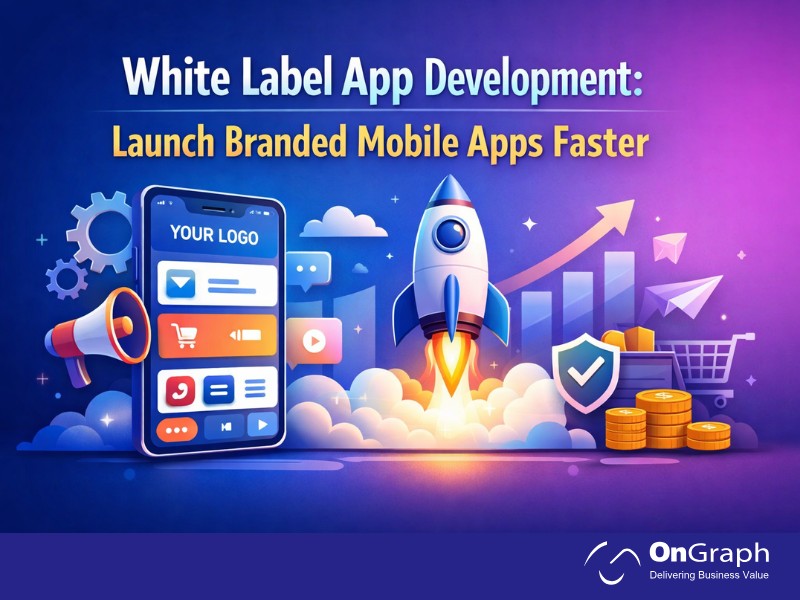In this article
There are several top reasons to use Python for web development, making it the go-to language across industries and market segments.
67.6% of developers prefer Python over other languages to build next-gen web applications. With its simplicity, flexibility, and extensive libraries and frameworks, Python streamlines web development.
If you don’t know, Python powers top brands in the market, making it an ideal choice for easily developing simple to AI complex web apps.
Aspiring developers can also find diverse Career Opportunities in Python for Web Development. From healthcare to ecommerce, finance, and AI-led projects, Python is suitable for advanced web development, software testing, and scripting.
Our company has been a leader in Python app development for the past 15 years, delivering hundreds of successful projects. We have highlighted the top reasons to choose Python in 2025.
What is Python Web Development?
Python web development means leveraging Python’s features and functionalities to build next-gen web applications.
Python has many tools (libraries and frameworks) that not only speed up the web app development process but also help build extended applications with high functionalities.
In Python web development, developers write the code that runs on the server. This code does things like:
- Responding to website visitors’ requests
- Storing and getting data
- Performing actions based on user input
- Showing changing or dynamic content on the site
Python helps power the behind-the-scenes parts of a website that make it work.
Top Pros of Using Python for Web Development
Python is widely used to build websites and web applications. Its wide range of libraries and frameworks helps in creating strong and flexible web apps. Here are some reasons why Python is so popular for web development:
1- Readability and simplicity
Python has a simple syntax that is easy to read and write, making the code more readable and easy to debug. Due to its simplicity, developers can explain concepts in fewer lines of code, leading to faster and more efficient web development.
2- Extensive and supportive community
over the years Python’s popularity has grown, beating programming languages like JS. Around 67% of developers prefer it for developing advanced and modern-age web app solutions.
This extensive community supports and contributes to improving the overall Python experience. This community provides libraries, frameworks, and custom solutions for web development.
3- Extensive Libraries and Ecosystem
Python offers several frameworks and libraries for unique web development needs. These frameworks provide ready-made code and features, so developers do not have to write code from scratch and improve developers experience.
Here are some popular Python frameworks used to build websites:
- Django: Django is a powerful Python framework for web app development. It provides a complete and robust set of tools for building complex web applications, like a user login system and template engine for a faster development process. Its MVC pattern and features like authentication, database ORM, and URL routing help in developing complex web apps.
- Flask: Flask is a lightweight framework that focuses on simplicity and speed. It is a perfect choice for building small apps and quick testing ideas. It uses a tool Jinja2 for creating templates, making it a popular choice for scaling projects.
- CherryPy: CherryPy is one of the oldest Python frameworks, allowing developers to build web apps quickly. It’s also free to use and works well on many different platforms.
Also, read- Best Python Frameworks To Explore in 2025
4- Scalability and Performance
Top brands like Spotify, Instagram, and Disqus use Python for its scalability and performance. Python is great for building websites that need to handle lots of visitors or traffic. It can handle many tasks simultaneously, making it faster and more efficient.
Python frameworks- Django and asyncio support asynchronous programming, allowing it to manage multiple requests simultaneously without slowing down.
Also, Python can easily work with other programming languages like C or C++ to use powerful, high-speed features from those languages when needed.
5- Integration and compatibility
Developers can integrate and use Python with other technologies, making it flexible for web app development. It can connect to different types of databases, like:
- SQL databases (e.g., MySQL, PostgreSQL, SQLite)
- NoSQL databases (e.g., MongoDB)
Python can also work with other important tools like:
- Web servers (for hosting websites)
- Message queues (for handling tasks in the background)
- Caching systems (for speeding up websites)
- APIs (for connecting to other services)
This makes it easy for developers to combine different parts and build a complete, working website.
6- Quick Testing and Debugging
Another reason to use Python for web app development is its seamless and effortless testing.
Developers use Python for its extensive testing tools like unittest and pytest to write and run tests effortlessly.
Python offers several debugging tools and IDEs for identifying and fixing mistakes quickly.
Also, read- Top Python Testing Frameworks in 2025
7- Faster Development
Businesses want faster time-to-market, and Python is capable of delivering that. Due to Python’s libraries, testing tools, and advanced integrations, developers can develop next-gen web applications instantly.
It not only reduces development costs but also saves efforts and time to deliver solutions faster in the market, giving a competitive edge.
With Python’s pre-built tools, developers don’t have to create everything from scratch. This makes Python especially useful for startups and small projects, where getting the product ready quickly is very important.
Choosing Python for your upcoming projects in 2025 will help you stand out and deliver seamless user experiences.
Python USP is its framework for web development, which not only speeds up the process but also helps improve the developer’s experience.
Different Python Web Development Frameworks
Python offers several frameworks to help build websites, each designed for different needs. Here are some of the popular Python frameworks used for web development:
| Framework | Description | Best For |
| Django | A full-featured framework offering built-in tools like database management, authentication, and form handling. It follows the MVC pattern for faster development. | Large, complex projects |
| Flask | A lightweight and flexible framework that gives developers more control over the app. It provides basic features like routing and templates but leaves other tasks (e.g., database) to external libraries. | Small to medium projects |
| Pyramid | A flexible framework that lets developers choose the components they need. It’s powerful yet simple, supporting many features like authentication and caching. | Projects of any size |
| Bottle | A very simple and small framework, great for beginners or small projects. It’s easy to learn and has basic features like routing and templates in a single file. | Small projects or learning |
| CherryPy | A fast, simple framework with an easy-to-use API for handling requests and managing sessions. It can run as a server or with other servers. | Small to medium applications and APIs |
| Tornado | A high-performance framework designed for handling lots of simultaneous connections. It’s good for real-time applications like chat servers or streaming platforms. | High-traffic, real-time apps |
These are commonly used Python’s framework for web app development. Each framework offers different features suitable for unique project needs.
Choose the right Python framework for your project and understand its needs to scale and support.
Apart from this Python offers extensive libraries for web development.
Also, Read- 9 Top Python Frameworks for App Development
Python Libraries for Web Development
Python offers many tools and libraries that make building websites easier and faster. These libraries help developers do tasks more efficiently, saving time and effort.
Here are some popular tools and libraries used in Python web development:
| Library | Description | Use Case |
| Requests | A simple library for making HTTP requests, handling APIs, headers, and authentication. | Interacting with web APIs or making HTTP requests. |
| Beautiful Soup | Useful for parsing HTML and XML, used for web scraping and extracting data. | Extracting data from web pages (web scraping). |
| Pillow | A library for image processing like resizing, cropping, and adding text. | Handling and editing images in web applications. |
| SQLAlchemy | A library that helps you work with databases using an easy-to-use interface. | Managing and interacting with databases in Python. |
| Celery | A library for running tasks in the background, making apps faster and more responsive. | Running background tasks like sending emails. |
| Flask-SQLAlchemy | An extension that integrates SQLAlchemy with Flask, making database work easier. | Working with databases in Flask applications. |
| Flask-WTF | An extension for handling web forms in Flask applications, including validation. | Managing forms and user input in Flask apps. |
| PyJWT | A library for working with JSON Web Tokens (JWT), used for authentication. | Authenticating users in web apps using JWT. |
| Redis-py | A Python client for Redis, used for fast data storage and caching. | Caching data and storing information quickly. |
| Pydantic | A library for validating and working with complex data structures. | Validating and parsing data in web applications. |
| Jinja2 | A template engine for generating dynamic content like HTML and emails. | Creating dynamic HTML pages and emails in web apps. |
These libraries make it easier for developers throughout the web development process. It can manage simple tasks that speed up the process.
Web Development with Python- A Roadmap for 2025
Here’s a simple guide to the main steps in web development with Python:
- First, start with the Python basics. You will learn core concepts including syntax, data types, control structures, and functions. With its extensive community, you will find several online resources to start your Python journey.
- Then, you must also learn other web technologies like HTML, CSS, JavaScript, and others for better and more dynamic web app development. This is because you can easily use Python with these languages to create advanced web pages.
- Selecting the right Python web framework is necessary for successful web development. Python has various web development frameworks offering different features and tools. So understanding their features helps you make informed decisions.
- You must also learn popular front-end frameworks and libraries to improve your web development skills. We prefer to learn React, Vue.js, or Angular to build interactive user interfaces and communicate with backend APIs.
- Also, learn about RESTful principles and design principles to build APIs for your project. You can use the chosen frameworks to build APIs to communicate with other applications or interfaces.
- Another important aspect to learn is authentication and authorization to protect your app. Learn how to implement secure user registration and access control mechanisms using built-in features.
- Excel in testing your applications, including unit testing, integration testing, and end-to-end testing. Python offers several tools and libraries for testing. You can use the testing frameworks provided by your chosen web app frameworks to write and execute tests.
- Ensure you know how to deploy your Python web app to a web server or cloud platform. It includes understanding concepts like-
- Server configuration
- Deployment automation
- Security considerations
- Scalability.
- Platforms like Heroku, AWS, or PythonAnywhere for web application hosting.
This roadmap is a general approach that any Python developer can choose for web app development in 2025. Consult a Python development company for smooth web app development.
Best Practices for Python Web Development
Here are some simple rules to follow when working with Python for web development:
1- Use a Web Framework: Frameworks like Django, Flask, and Pyramid provide ready-made tools to help build websites. They make your coding easier and more organized.
2- Follow the MVC Pattern: This means separating your app into three parts:
- Model: Where data is stored.
- View: What the user sees.
- Controller: Manages how data and views interact. This makes your code cleaner and easier to manage.
3- Use Virtual Environments: Virtual environments keep your project’s packages separate from the rest of your system. This avoids conflicts and keeps your project organized.
4- Use ORM for Databases: An ORM (like SQLAlchemy) helps you interact with databases using Python, instead of writing complex database commands. This makes database work simpler and safer.
5- Write Unit Tests: Testing your code helps find and fix problems early. Use tools like unittest or pytest to automatically test your app and make sure everything works properly.
6- Handle Security in Web Development: Web apps can be attacked in many ways, so it’s important to follow security practices to keep your users safe.
Following these steps helps keep your code clean, organized, and easier to maintain.
Hire Python developers with OnGraph
Python has had a significant impact on the web development landscape. Its wide range of libraries, frameworks, and tools, makes it an ideal choice for developing next-gen web applications- simple to complex.
Python helps developers create powerful and scalable web apps quickly. At OnGraph, we have skilled Python developers who can help understand your business requirements and build top-notch web apps for varied industries.
Connect with OnGraph’s vetted Python developers to stand out and build future-ready solutions.
About the Author
Let’s Create Something Great Together!
Latest Blog
















